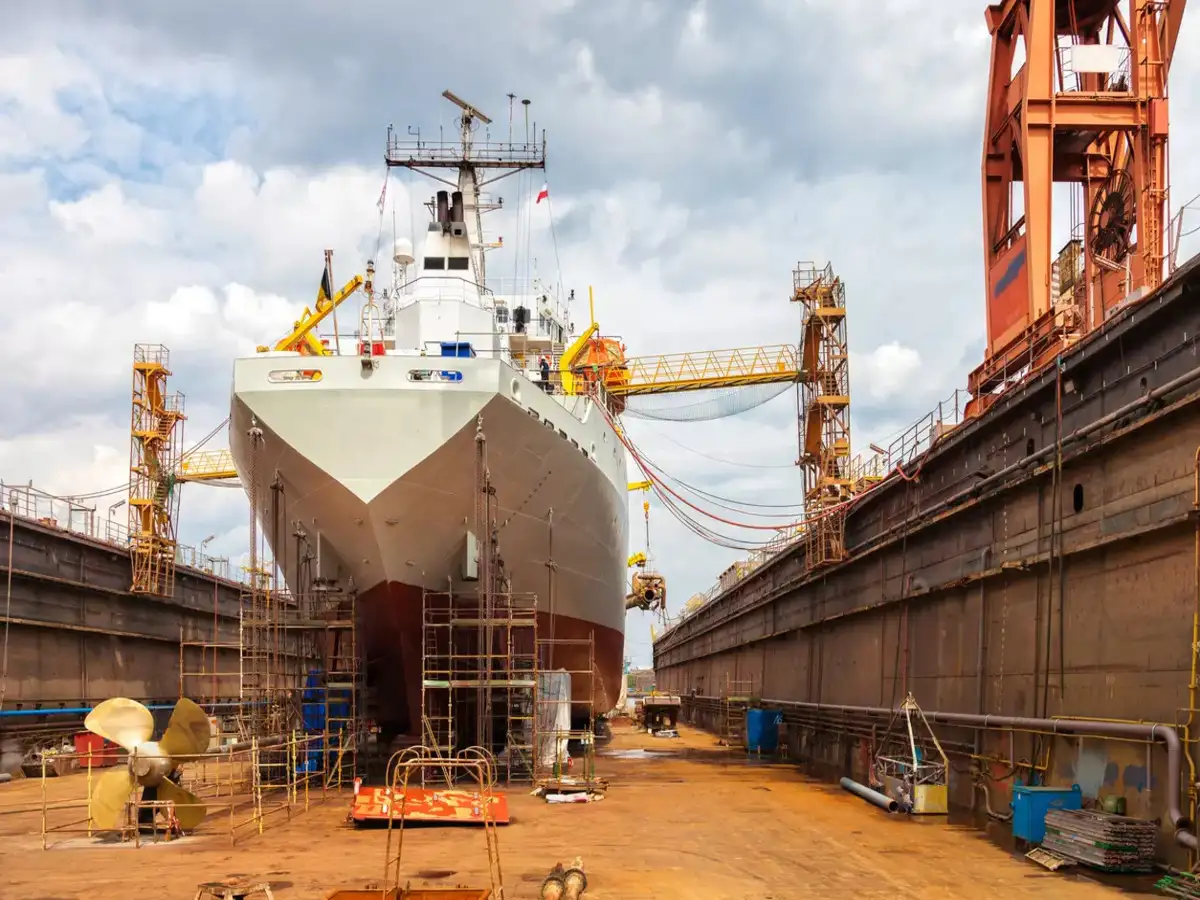
DPA Kandla Shipyard cancels tender for Mega Shipbuilding Cluster after single bid
GANDHIDHAM : In a major setback to India’s ambitions of revitalising its shipbuilding industry, the Deendayal Port Authority (DPA) has scrapped a high-profile tender to develop an integrated shipbuilding cluster on 2,000 acres of land at Kandla, Gujarat. The decision was made after the tender attracted only a single bid from Pune-based Accurate Industrial Controls Pvt Ltd, backed by Korea Maritime Consultants Co., Ltd (KOMAC), a South Korean entity.
A person familiar with the matter confirmed that DPA did not proceed to open the price bid submitted by the Accurate-KOMAC joint venture, citing concerns over limited competition and the domestic partner’s credentials. “Deendayal Port Authority has discharged the tender; it did not open the price bid submitted by the Accurate Industrial Controls – KOMAC joint venture,” the source said.
The DPA plans to re-issue the tender with revised qualification norms, acknowledging that the stringent eligibility criteria may have discouraged broader participation. Originally, the tender required bidders to have independently — and not through joint ventures or consortia — designed, executed, and constructed a shipyard with Very Large Crude Carrier (VLCC) class shipbuilding capabilities.
The rigid terms were crafted with major South Korean shipbuilders in mind. However, South Korean companies, while interested in the Indian market, are generally reluctant to invest directly in greenfield shipyard projects. “They prefer to participate through joint ventures, not direct investment,” the person added.
During the pre-bid stage, some Indian companies expressed interest but sought relaxation in the qualification norms, pointing out their lack of direct experience with projects of this magnitude. While DPA eventually allowed consortiums and joint ventures to participate, it did not revise the core qualification clause, rendering the concession ineffective.
“Unless the qualification criteria explicitly state that experience can be through a joint venture or consortium, allowing such formations in the bidding process serves no purpose,” the person noted.
The port authority was also reportedly uneasy with awarding such a high-stakes project to a single bidder. “They weren’t comfortable with the capabilities of the Indian partner,” the source said, suggesting that the joint venture failed to meet the expectations required for a project of national importance.
This project is significant not only for Gujarat but for India’s broader maritime strategy. The shipbuilding cluster at Kandla was intended to be the country’s first greenfield shipyard in over 17 years. The last such development was Larsen & Toubro’s shipbuilding facility at Kattupalli, near Chennai, completed in 2008.
The project follows the central government’s recent policy push to revive the domestic shipbuilding sector. In the Union Budget presented on February 1, Finance Minister Nirmala Sitharaman unveiled a ₹25,000 crore Maritime Development Fund (MDF), a revamped shipbuilding financial assistance policy, and infrastructure status for large shipyards. Additional incentives included a 10-year extension on customs duty exemptions for shipbuilding and shipbreaking inputs.
Sitharaman emphasized the formation of shipbuilding clusters with upgraded infrastructure, skilled manpower, and new technology to bolster the sector’s ecosystem. The goal: to raise India’s global shipbuilding share from under 1% to rank among the top 10 by 2030 and top 5 by 2047.
As per the scrapped tender, DPA had set a provisional reserve price of ₹27,510 per acre per year for the land lease. Bidders were expected to quote a premium over this base rent. The lease was to run for a maximum of 30 years with no renewal option.
India’s long-term plans are aligned with global trends. Over 50,000 ships are projected to be built worldwide in the next three decades, many incorporating green technologies as the shipping industry pivots toward decarbonization.
The revised tender from DPA, which is expected to lower entry barriers for qualified joint ventures and consortia, may attract broader participation when reissued. However, experts say consistent and flexible policy support will be crucial if India is to become a competitive force in global shipbuilding.

